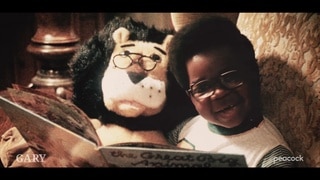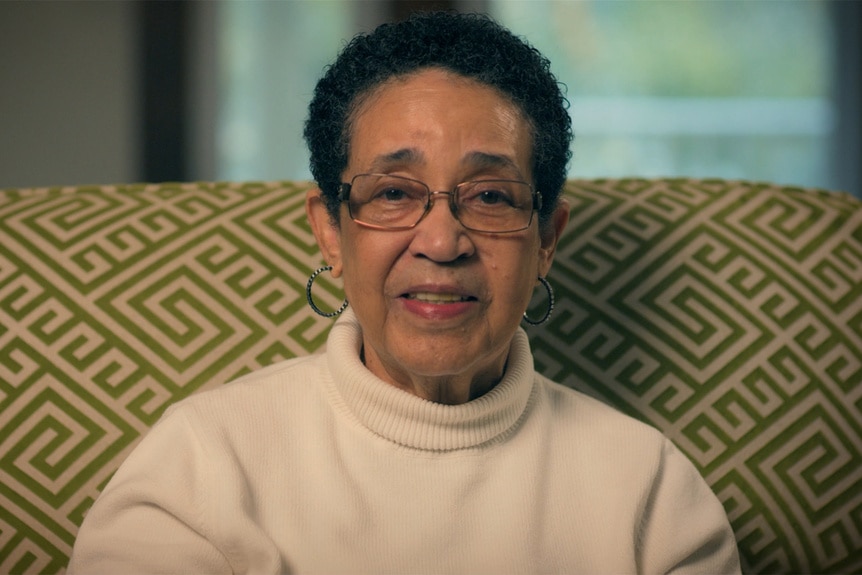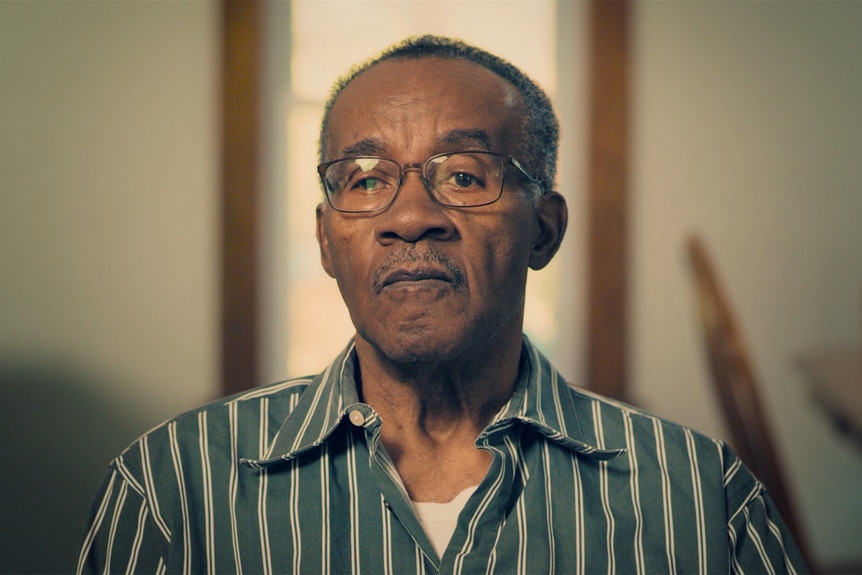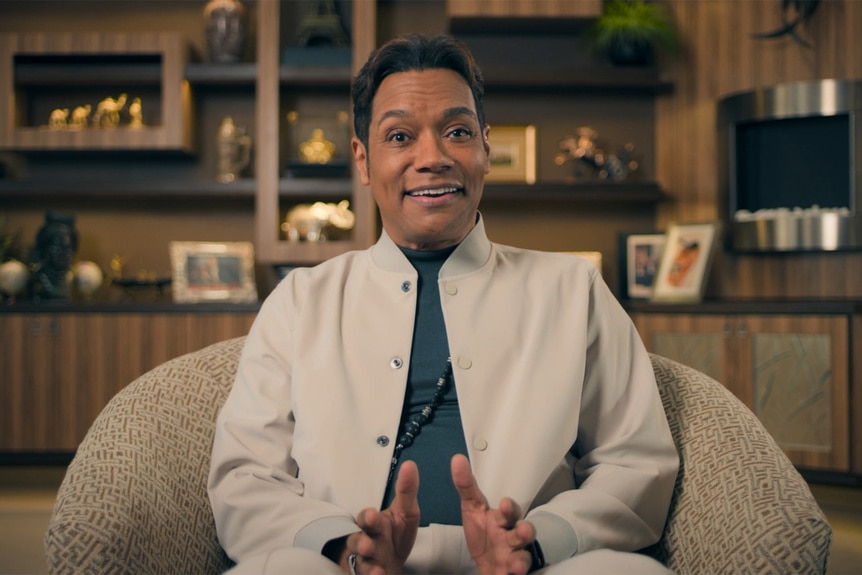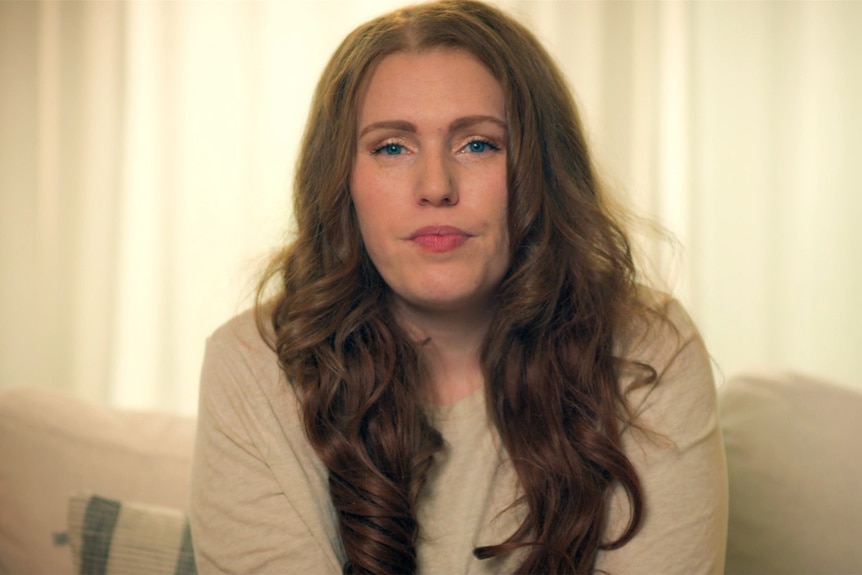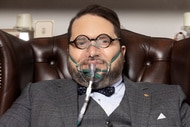Create a free profile to get unlimited access to exclusive videos, breaking news, sweepstakes, and more!
Gary Coleman’s Family and Friends Speak Out About His Tragic Life
Those closest to the Diff'rent Strokes child star discuss the events leading to Coleman's 2010 death, which came at the peak of his legal, health, and financial woes.
Relatives, friends, business associates, and more are speaking candidly for the first time about actor Gary Coleman in the upcoming Peacock documentary, GARY.
The eye-opening special recounts the troubled life and “suspicious” death of Coleman, who catapulted into child stardom for his role as Arnold Jackson in Diff’rent Strokes, which aired for eight seasons from 1978 to 1986. Coleman — whose stunted growth pigeon-holed him to his earliest roles as a child actor — would face many challenges throughout his adult life, including courtroom battles and arrests, much of which became tabloid fodder for the masses.
GARY features exclusive interviews with those who knew Coleman best, retracing how fame helped negatively shape the actor’s life.
“The entertainment industry is not designed to protect anyone’s life,” said Coleman’s lifelong friend, Dion Mial. “It will chew you up and spit you out.”
Learn what Coleman’s people had to say in the 90-minute documentary that serves as what Peacock refers to as a “cautionary tale,” and which explores the circumstances surrounding the actor’s untimely 2010 death.
Gary Coleman’s Early Career and Health Struggles
Born in Zion, Illinois — about 60 miles north of Chicago and just south of the Wisconsin border — the child star with a natural gift for acting lived with a congenital kidney defect that would impact his health for the rest of his life. In 1970, at the age of two, parents Willie and Sue Coleman sought medical treatment when the toddler suffered a fever.
“One kidney was pretty much atrophied, and the other kidney was functioning but not really properly,” the mother said in GARY.
At age 5, Coleman underwent a necessary kidney transplant and later became reliant on routine dialysis for the rest of his life. However, the bright and bubbly child — who was reportedly back to doing handstands just weeks after the surgery — caught the attention of local scouts. After starring in a bank commercial, his family set out for the lights of Hollywood, where he soon caught his big break with Diff’rent Strokes.
It wasn’t long after that Coleman realized he would not grow past 4-feet, 8-inches tall due to the immunosuppressant drugs he had to take following the kidney transplant, according to Mial. Coleman’s height hindered his character from growing along with his costars like Todd Bridges and the late Dana Plato. That, coupled with the work pressures handed down from a demanding Willie Coleman, seemingly contributed to the actor falling into a deep depression in his late teens, according to those on set at the time who were later interviewed in the documentary.
“When Diff’rent Strokes was canceled in 1986, Gary was 18, and he was exhausted; he was spent,” said Mial. “In fact, he vowed never to work again in the entertainment business, and no one would accept that.”
RELATED: Unexpected Witness Comes Forward after 2008 Iowa Car Crash Becomes Homicide Investigation
Coleman's legal battles over finances and estrangement from parents
Following a 1987 trip to Hawaii, Mial and Coleman began to question whether his parents and business manager, Anita DeThomas, possibly skimmed money owed to the actor from what was called a “blocked account,” earnings reserved for Coleman once he turned 18.
“Eventually, it came to a point where Gary terminated his business relationship with his entire team of handlers and his parents,” Mial told producers.
However, others — including Coleman’s former theatrical agent, Victor Perillo — were against Coleman’s decision to sever ties. Sue Coleman believed her son was “influenced” to do so.
“If I see a demon coming, I’m gonna watch that demon as close as I possibly can, and when I get a chance, I’m gonna put that demon’s lights out,” said Willie Coleman. “And I told Dion [Mial] that. I said, ‘If I ever find out that you have tried to do anything with Gary or to Gary, that’ll be the last breath you take on this earth.’”
In 1988, Coleman hired lawyers to investigate his finances. He later filed a lawsuit in December 1989, leading to a protracted and high-profile case, especially after Willie and Sue Coleman petitioned for a conservatorship over the actor. That strategy failed, and a judge eventually ruled in February 1993 that the accused skimmed more than $1 million from the blocked account.
Some of the money went into failed real estate ventures in the Midwest.
The parents claimed ignorance when it came to managing money and said they only signed where told.
“I just cannot imagine how you cannot notice all the money being drained out of the accounts and gone, especially when you’re getting it,” Coleman’s attorney, Drew Ryce, said in the documentary.
“As God as my witness, we’ve been straight up about every detail, every turn, every corner,” Coleman’s father maintained. “And [there have] been no twist[s] and turn[s] nowhere; never with us.”
RELATED: Who Was Barney Simms, the Prominent Atlanta Civic Leader Killed By a Shocking Suspect?
Coleman’s Assault and Battery Charges
Despite Gary Coleman’s courtroom success, he never saw film and T.V. success as he had with Diff’rent Strokes, partly due to his stature hindering him from sought-after roles. He had bit parts as his Arnold Jackson character — made famous by the catchphrase, “What’chu talkin’ ’bout, Willis?” — in shows such as The Fresh Prince of Bel-Air and Married… with Children, but his professional life was largely overshadowed by his personal one.
In 1997, he and his girlfriend, Anna Gray, lived together in a Culver City, California, apartment. Around that time, with work dried up in the entertainment industry, Coleman found employment as a security guard.
In what would become an event widely parodied at the time, Coleman was arrested after an altercation with a female fan. According to those closest to Coleman, the former actor was shopping for a bullet-proof vest at a Hawthorne security store when a fan asked for Coleman’s autograph. A verbal altercation ensued, and after witnesses said the fan insulted his acting career, Coleman punched the woman in the face.
He ultimately pleaded no contest to assault and battery and was sentenced to 90 days suspended, a small fine, and anger management classes.
“Gary regretted what happened instantly,” said Gray.
“He felt that, really, in that moment, the bottom had fallen out once again, and it was horrible,” said Mial. “Yet another opportunity for the public to make fun of him, to cast dispersions upon him, and to belittle him.”
Gray — who dated Coleman for more than six years — said the altercation and the public fallout worsened Coleman’s depression.
“He was really depressed; he stopped going out as often,” said Gray. “He didn’t trust people anymore.”
RELATED: Why Don’t Missing Kids Appear on Milk Cartons Anymore?
Coleman’s “Tumultuous” Marriage to Shannon Price
Coleman moved to Santaquin, Utah — about 20 miles south of Provo — after filming Church Ball in 2005. That was when he met his future wife, 19-year-old Shannon Price, who played an extra in the film.
As seen in the documentary, Coleman’s friends, including Mial, Gray, and Utah-based Brandi Buys, were immediately skeptical that Price was only after the money she perceived Coleman to have—an assertion that Price refutes.
Coleman’s Utah-based lawyer, Randy Kester, called the relationship “tumultuous” and “all over the place.”
“She constantly wanted him to go make the money; ‘Call this person, call that person, do this,’” Buys told producers. “He just always felt he was a paycheck.”
In GARY, Price admitted to heated exchanges.
Coleman and Price married in 2007 but divorced one year later, though they still shared the Santaquin home until Coleman’s 2010 death. During that time, police were called at least two times for reports of domestic violence from both parties, and in one instance, Coleman was booked into the county jail.
According to Kester, Coleman also weighed getting a restraining order against Price.
“It was only a couple times, as far as anything physical,” Coleman’s ex-wife told producers. “I slapped him a couple of times, I mean, nothing major. Nothing, like, red-flag. Like, people smack each other, they hit each other. People do it. If you deny it, you’re crazy.”
About Gary Coleman’s 2010 Death
On Wednesday, May 26, 2010, Coleman returned from dialysis and reportedly fell and hit his head in the kitchen of his and Price’s shared Santaquin home. Some, including Gray and Buys, questioned the ex-wife based on her actions following the fall, including her declining to accompany Coleman on the way to the hospital.
Loved ones became “appalled” when Price’s call to 9-1-1 was released.
“Send someone quick ’cause I don’t know if he’s, like, gonna be alive,” Price told dispatchers. She said Coleman was “bubbling at the mouth” and unconscious, but contended that she couldn’t stay because of the sight of blood.
“There’s just blood all over and I can’t do anything,” Price continued in the call. “I just been kinda sick, and you know like, I don’t want to be traumatized right now.”
Wariness around Price only grew when she took a selfie of herself and Coleman — who was then intubated in a hospital bed — shortly before doctors took him off life support just two days after the fall. The photo later appeared in tabloids.
Coleman was 42 years old.
“I want to say so much, but I don’t know what I could say without being sued,” Brandi Buys told producers.
Shannon Price continues to deny having a role in her ex-husband’s death, and ultimately, investigators found no evidence of foul play.
“Like, how can people be so evil and just think that I did this?” Price told producers. “Why, because I’m the ex-wife? I’m the evil person, right?”
GARY is streaming exclusively on Peacock.
